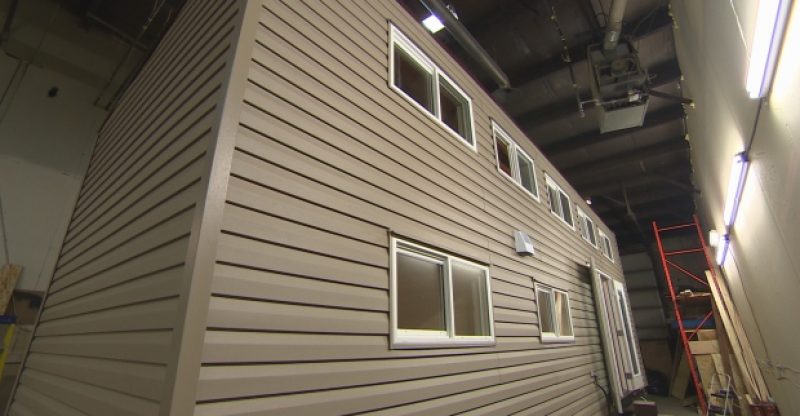Tiny homes’ popularity rises but Manitoba municipal bylaws remains an obstacle.
The next big deal in Canada’s housing are Tiny homes, yet homebuilders in Manitoba say city laws haven’t made up for lost time with the trend.
Darrell Manuliak of Manitoba, with his wife Anita Munn who owns Mini Homes said in their first year of business in the area they have sold 5 of the small dwellings. And as of now they have a wait list for 2017.
“When the average price of homes is over $200,000, affordable housing isn’t available, so we’re providing that service to people,” Manuliak said.
The biggest home they’ve build is just 320-square-feet yet the little structures are fitted with water and electrical outlets the same as a camper. But other cities across Canada particularly Winnipeg, forbids people to live in these types of structures full time.
“I think we’re behind the times,” Munn said.
“I think when we see other provinces, Ottawa does the lane houses, Calgary is looking into putting a mini home community, I mean these are all things that suggest that people are realizing that it’s not a fad anymore.”
There isn’t a way to precisely know what number of individuals live in small pads the nation yet. Tiny House Listings Canada estimates there are thousands from British Columbia to Nova Scotia.
“We’re finding that Ontario is really ahead of the game, B.C. is sort of catching up and the rest of them are navigating how to make it legal while following the Canada building code,” said Natalie Brake, marketing manager for Tiny House Listings Canada.
Municipalities still haven’t figured out how to tax the smaller structures fairly.
“Whether they sort of realize it or not, it’s not going to go anywhere,” she said. “At a certain point the movement is going to sort of demand that the local municipalities do take it seriously.”
Manuliak and Munn have been pushing the City of Winnipeg to revise local laws and said there’s been enthusiasm from some councilors, however so far nothing has changed.





